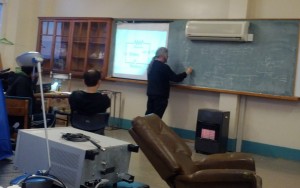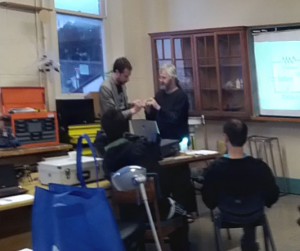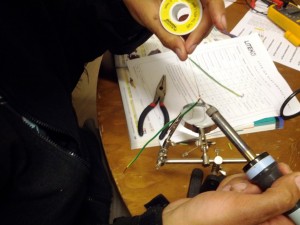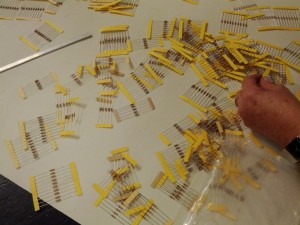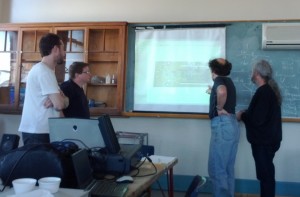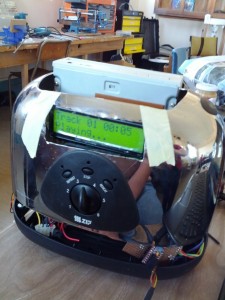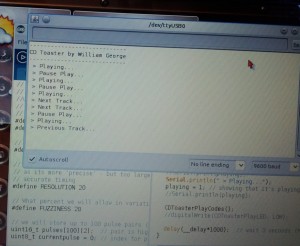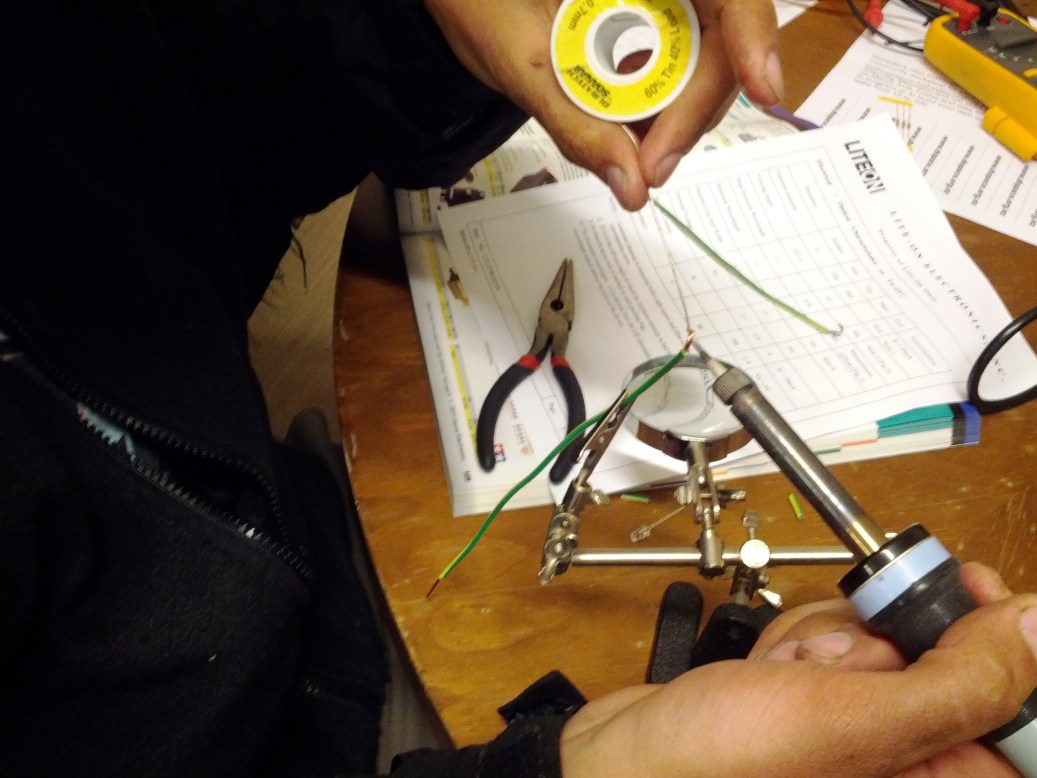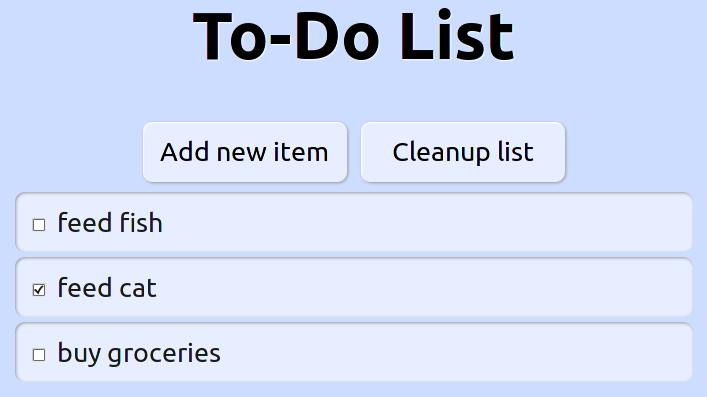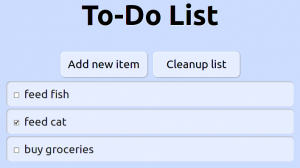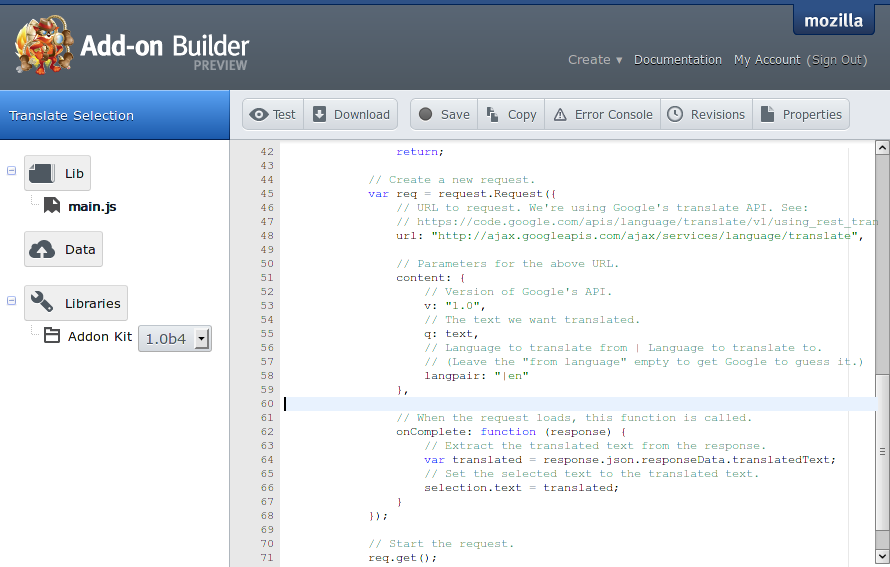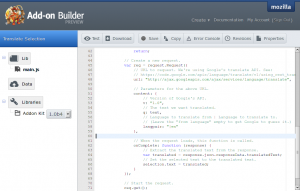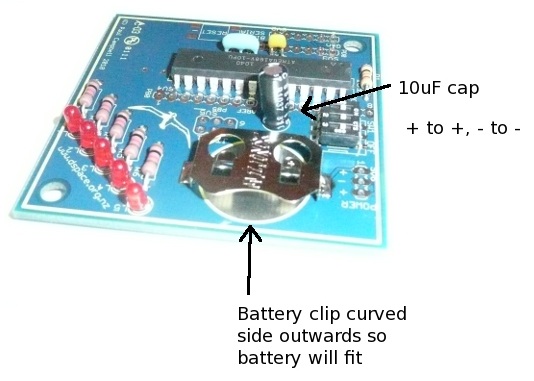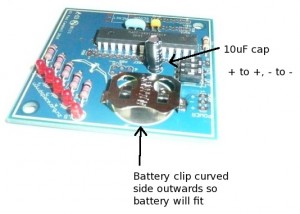Casual get together/meeting. Discussion topics: group activities/competitions, Paul’s electronic membership badge project, internet connection, website, draft weekly schedule, equipment.
We had a casual get together/meeting on Sunday 16th January, at the makerspace.
General
Discussed group activities/makerspace competitions. Clothes line racing seems doable, fun, and had a lot of interest. Power tool drag races seems less doable and a little dangerous.
Paul has ordered the parts for the electronic membership badge project – cost is $20 each. They could potentially be included as part of a yearly membership.
No progress yet on getting an internet connection setup – waiting to hear back from WIC. As a temporary measure, we may be able to pickup a useable WiFi signal with a good antenna positioned by the window.
Getting a real website setup was also brought up – so I (Blair) volunteered to do that. This is the result, though I’m still working on it, and it could really do with more content. I’ll post my thoughts on it sometime soon.
Draft weekly schedule
We discussed starting up regular meetings/events. Current plan is to start soon with just a few select times during the week, so we’re not spread too thinly throughout the week. Here’s the draft weekly timetable we came up with:
Main scheduled open time: Saturday afternoons, 1pm onwards. This will be the main regular time the room will be open for anyone to come in and work on anything they want. Starting immediately! Saturday 22nd January.
Presentations/talks: Thursday evenings. General topic will alternate weekly: electronics/hardware/etc (organized by Paul), and software/programming/etc (organized by Blair). Probably starting sometime in March.
Remote workers coworking: Wednesday afternoons. A few of us work remotely (ie, work from home, far away from a company office or any co-workers), and want a time were we can come into the makerspace during the day to work on our day jobs, pretending we’re at an office. Starting once we have a reliable internet connection.
Equipment and things
People brought in some things for DSpace (either on loan, or donations) – computer equipment, electronics equipment, seating, toys/gadgets, 3D printer, etc. We ran out of time and didn’t get a chance to catalog anything, so we’ll do that next meeting.
Things the makerspace still needs to help get the room setup:
- A couch (Rob thinks he can get one, but having two would be nice)
- A coffee table
- A fridge
- Power cords and splitters (while one side of the room has many outlets, one of the work areas does not)
- Curtains (hopefully that will help further reduce the echo in the room)
Next meeting
Next casual get together/meeting will be at: 1pm to 4pm Saturday 22nd January. It’ll held at the makerspace.
